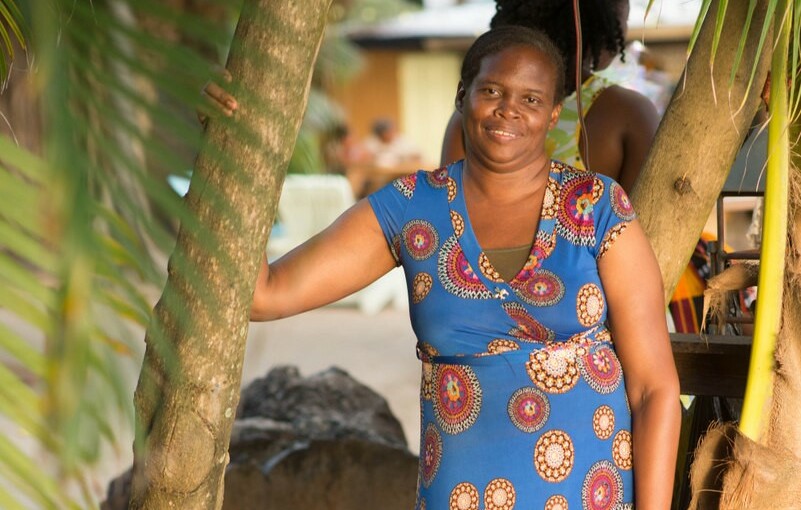The UN Women’s multi-hazard approach to disaster risk resilience in Saint Vincent and the Grenadines
Date:

By Kyana Bowen and Sharon Carter-Burke
As we continue to operate in a COVID-19 environment, the UN Women Multi-Country Office (MCO) in the Caribbean is playing an integral role in strengthening gender-responsive disaster resilience across the region.
Since early March 2020, Saint Vincent and the Grenadines (SVG) has managed multiple disasters
It is managing the impact of COVID-19, prepared for the 2020 Atlantic Hurricane Season, and is now faced with an active La Soufrière Volcano. COVID-19 has resulted in varying and disproportionate impacts on livelihoods and the economy, requiring the differing needs of women, men, boys’ and girls’ to be considered when developing policies to manage impacts from the pandemic. Moreover, the recent volcanic activity at La Soufrière has triggered more cohesive, proactive, and gender transformative preparedness.
At both the national and community levels, women and men have been impacted differently by multiple hazards
In terms of loss of income, more women work in the lower paid and informal segment of the tourism sector, one of the hardest hit sectors with closures and contractions. The many women small holder farmers in the Saint Vincent and Grenadines agriculture sector were also impacted by the closure of markets due to COVID curfews and restricted movement; and could not sell their produce. Men in the construction, agriculture and tourism sectors have also suffered loss of income. Effusive eruption of the volcano has also contaminated nearby agricultural fields, further threatening women’s livelihoods. Therefore, gender-responsive climate change and disaster resilience planning, is key at the various stages of sustainable development.
Read more at https://www.preventionweb.net/news/view/76384